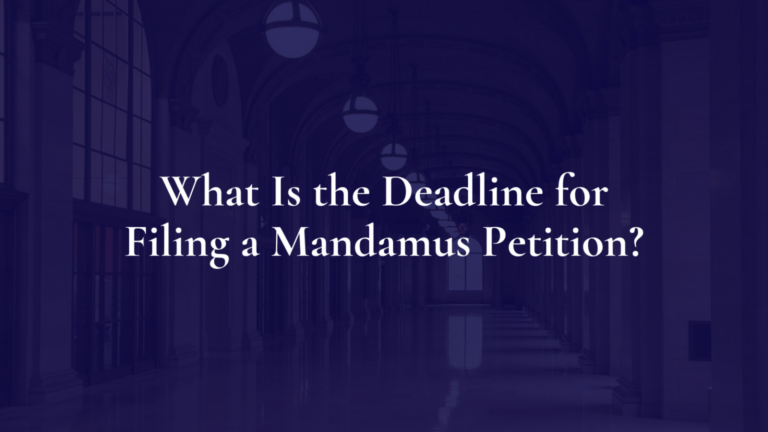I get this question periodically. The short answer is that the Texas Rules of Appellate Procedure don’t impose a deadline. But that doesn’t mean a relator (a party wishing to challenge a trial court’s order by filing a petition for writ of mandamus) can delay pursuing mandamus relief indefinitely.
Rooted in Equity
Mandamus is an extraordinary remedy, not a right, and its issuance is largely controlled by equitable principles. A relator may only obtain mandamus relief if it can show that the trial court committed a clear abuse of discretion for which the relator lacks an adequate remedy by appeal.
Equity doesn’t favor those who sleep on their rights. The procedural rules might not impose a time limit for bringing a mandamus petition, but promptness is essential to success. An unjustified delay may preclude mandamus relief.
Whether a perceived delay is “justified” will depend on the facts. Practically speaking, a relator who files a mandamus petition within a month or two after the order it complains about likely won’t have a time problem. But a relator who waits longer than that very well may.
To win based solely on a purported delay, the real party in interest (the party opposing mandamus relief) will need to show (1) that the relator unreasonably delayed asserting its rights, and (2) that, acting in good faith, the real party in interest detrimentally changed its position based on the relator’s delay.
Again, this inquiry is very fact-specific. An unexplained and prejudicial delay in one circumstance may be excusable in another.
Avoid Procrastination
Meeting the mandamus standard is tough. When done right, mandamuses are often harder to handle than ordinary appeals. That difficulty is amplified when the lawyer charged with preparing the petition lacks experience in or comfort with the process.
Taking the time to put together a thoughtful mandamus petition is important, but procrastination is not your friend here. Relators should avoid creating any timing issue and give themselves the best chance to win by pursuing mandamus relief promptly after the trial court signs the offending order.
